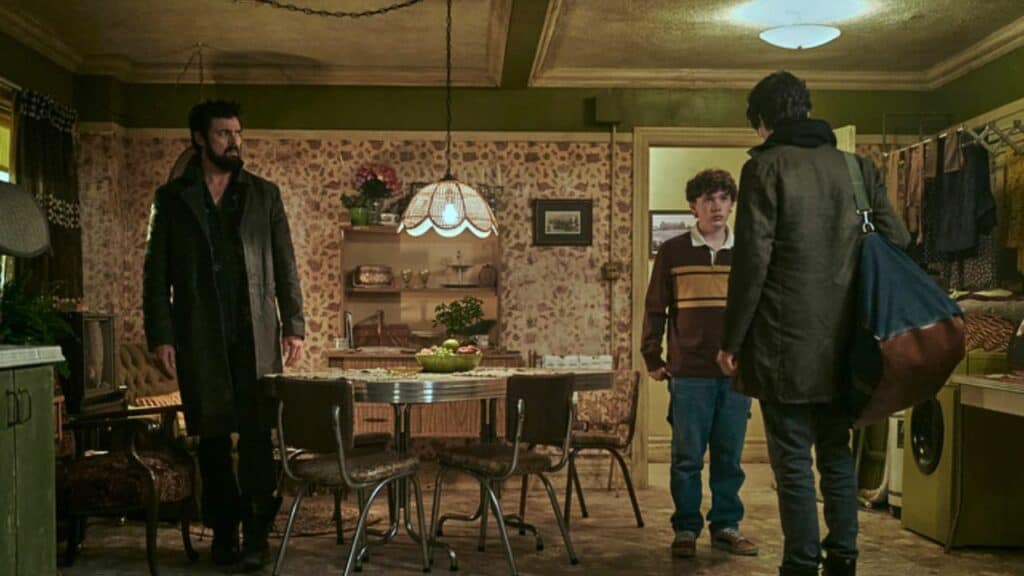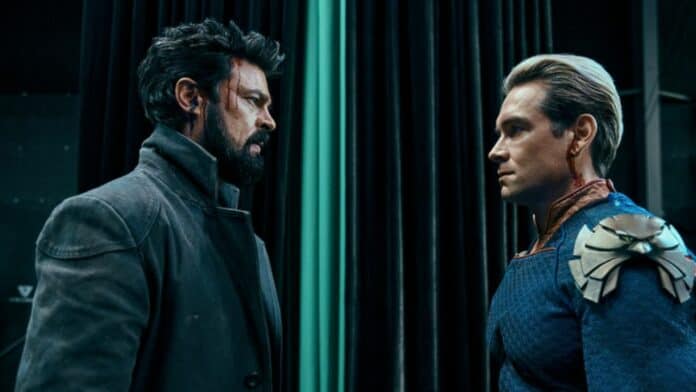The Boys is a superhero series on Prime Video and based on the comic book series of the same name written by Garth Ennis and Darick Robertson.
In the groundbreaking series The Boys, the central conflict revolves around two groups: The Boys and The Seven.
This confrontation is not merely about physical battles but also represents a clash of ideologies.
The intricate narrative of The Boys presents these two factions in a manner that explores their ideological differences while also uncovering surprising parallels.
The Ideological Foundation of The Boys
The Boys, led by the vengeful Billy Butcher, are driven by a deep-seated disdain for superheroes, particularly those in The Seven.
Their ideology stems from personal losses and a belief that superheroes, despite their public image, are inherently corrupt and dangerous.
The Boys operate outside the law, using guerrilla tactics to expose the true nature of superheroes to the world.
Their mission, although morally ambiguous, is fueled by a desire for justice and accountability.
The Seven: A Façade of Heroism
On the other hand, The Seven, a corporate-backed superhero team, represents the conventional image of heroism.
However, The Boys peels back this veneer to reveal a darker reality.
The Seven are depicted as deeply flawed individuals, often motivated by fame, power, and selfish interests.
They are products of a corporate machine that markets heroism for profit, raising questions about the commercialization of altruism and the moral complexities of those idolized as heroes.
Clashes Between The Boys and The Seven
The clash between The Boys and The Seven is the series’ driving force, showcasing a battle between grassroots rebellion and corporate power.
The Boys challenge the status quo, taking on a David vs. Goliath fight against the seemingly untouchable superheroes.
This conflict delves into themes of power, corruption, and the consequences of unchecked authority.
Unexpected Parallels
Despite their stark differences, The Boys also presents parallels between the two groups.
Both factions, in their ways, grapple with internal conflicts, personal demons, and moral dilemmas.
Characters from both sides face struggles with identity, loyalty, and the burden of their actions.
This nuanced portrayal adds depth to the series, demonstrating that the line between heroes and anti-heroes is often blurred.

Conclusion
The Boys masterfully explores the ideological battle between The Boys and The Seven, presenting a complex narrative that goes beyond typical good vs. evil tropes.
By highlighting both the ideological clashes and the unexpected similarities between these groups, the series invites viewers to ponder the true nature of heroism and villainy.
In doing so, The Boys not only entertains but also provokes thought, making it a standout in the realm of superhero narratives.

